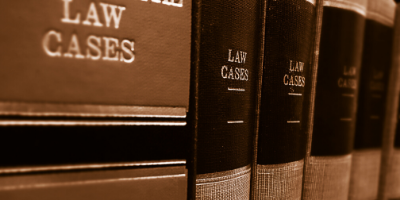Quarterly Journal Volume 51, Issue 2
In This Section
Please sign in to view the articles. Once you've signed in please refresh the page to see the download link.
The AIPLA Quarterly Journal, a publication of the American Intellectual Property Law Association, is housed at the George Washington University Law School and is edited and managed by an Editorial Board of intellectual property experts and a staff of law students under the direction of the Editor-in-Chief, Professor Joan Schaffner.
The Quarterly Journal is dedicated to presenting materials relating to intellectual property matters and is published four times per year. Editorial Board members (all of whom are lawyers) are selected based upon demonstrated interest and experience, and student staff members are selected from the students of the GWU Law School.
 QJ 51.2 - Compacting Prosecution and Petitions at the USTPO: Incredibly Useful and Incredibly Frustrating
QJ 51.2 - Compacting Prosecution and Petitions at the USTPO: Incredibly Useful and Incredibly Frustrating
Ryan Pool
Petitions for an incomplete Office Action can be an efficient and effective tool for applicants to compact prosecution before the USPTO by ensuring that Examiners uphold their duty to progress prosecution on every issue preventing allowance. However, the USPTO’s failure to timely process these petitions jeopardizes the system, lowers patent quality, and cost applicants money. This paper explains how the system works and how it doesn’t.
 QJ 51.2 - Architects, Artists, Photographers, Property Owners, the Public and Their Rights: Reconciling VARA, the AWCPA, and Copyright Fundamentals
QJ 51.2 - Architects, Artists, Photographers, Property Owners, the Public and Their Rights: Reconciling VARA, the AWCPA, and Copyright Fundamentals
David Shipley
Congress expanded the rights of architects and visual artists in 1990 when it enacted the Architectural Works Copyright Protection Act (AWCPA) and the Visual Artists Rights Act (VARA). However, after more than three decades there are still several questions about the relationship between VARA, the AWCPA, and the rest of the Copyright Act. One question concerns a visual artist’s rights against unauthorized photographs or other pictorial representations of a building that incorporates the artist’s work, such as a mural or a sculptural work. Does the photograph infringe the artists’ rights in that work or is it exempted? Another question concerns a visual artist’s rights in a work incorporated in a building when the owner of the building wants to remodel or demolish the structure. If the work of visual art is of recognized stature, can the artist insist on removing the work or recover damages if the building owner destroys it during the demolition or remodeling? There is relatively recent litigation involving photographs of artists’ murals on buildings that were posted on websites, sketches or diagrams of architects’ plans that were posted on websites, and the deliberate whitewashing of acclaimed street art that had been sprayed on a dilapidated warehouse. These cases have required courts to interpret and apply VARA, the AWCPA and the Copyright Act to resolve several challenging questions. This article explains and reconciles the results in these cases, and recommends a way to interpret provisions in VARA and the AWCPA to accommodate the rights and interests of artists, architects, photographers, building owners and the general public.
 QJ 51.2 - What is Really in the Best Interest of Baseball?: How Declining Public Trust in America’s Pastime Can Be the Catalyst for Federal Intellectual Property Legislation
QJ 51.2 - What is Really in the Best Interest of Baseball?: How Declining Public Trust in America’s Pastime Can Be the Catalyst for Federal Intellectual Property Legislation
Alyssa Karfinkel
During the 2017 and 2018 Major League Baseball seasons, the Houston Astros orchestrated a sign stealing operation that ultimately led to its World Series win. The punishments imposed by the Commissioner of Baseball were doled out arbitrarily, leaving fans, players, and the media dissatisfied and angry. This Note argues that the plenary power held by the Commissioner is harmful to the game of baseball, and proposes federal legislation to protect signs from improper misappropriation, drawing heavily on trade secret law.
 QJ 51.2 - Have Your Cake and Eat It Too: Providing Free Public Access of Copyrighted Standards Incorporated by Reference into Law Through Compulsory Licensing
QJ 51.2 - Have Your Cake and Eat It Too: Providing Free Public Access of Copyrighted Standards Incorporated by Reference into Law Through Compulsory Licensing
Zoie Mestayer
Incorporation by reference is a common practice in rulemaking where federal agencies make a rule that cites standards owned and developed by private organizations. These standards appear only in name and citation in the final regulation but nonetheless have legal effect as if they were fully included in the rule. Even though these standards constitute a binding piece of law, standards developing organizations (“SDOs”) retain copyright ownership of these standards,
allowing them to charge a fee in exchange for access to the full standard. Many SDOs have provided free read-only access to certain incorporated standards on their websites, but this practice is voluntary and often inconsistent. Regardless of the efforts of SDOs to make these standards accessible, the incorporating agencies should provide free online access to satisfy due process and the First Amendment. Free online access would also comport with fundamental
principles of equity, fairness, and efficiency. The proposed compulsory licensing regime would require agencies to provide this free online access while respecting the copyright interests of SDOs and incentivizing them to continue developing industry standards.
 QJ 51.2 - The Need to Adopt Blockchain in the Intellectual Property Field and How to Do It
QJ 51.2 - The Need to Adopt Blockchain in the Intellectual Property Field and How to Do It
Grant Pincock
Implementation of blockchain technology needs to occur within the field of intellectual property. To properly implement blockchain technology, parties must understand the purpose of the blockchain, determine whether to develop a new platform or leverage an existing platform, select a consensus protocol, initialize the platform, and establish a community of trust. This note discusses how to implement a blockchain system. It presents a detailed understanding of blockchain with a discussion of the nuances therein. This note concludes with how blockchain can solve current issues within the intellectual property field through the use of decentralized applications (dApps), smart contracts, and tokenization.
Upcoming Events
-
.png?sfvrsn=fb5905da_1) 2026 IP Transactions Bootcamp
2026 IP Transactions Bootcamp
February 12, 2026
-
.png?sfvrsn=48c235e_1) 2026 Patent Prosecution Bootcamp - Arlington, VA
2026 Patent Prosecution Bootcamp - Arlington, VA
March 4 to 6, 2026 | Up to 1235 minutes, including 60 Ethics minutes
-
 AIPLA CLE Webinar: Damages 2025 Year-in-Review: Lessons and Litigation Strategies
AIPLA CLE Webinar: Damages 2025 Year-in-Review: Lessons and Litigation Strategies
March 11, 2026 2:00 PM to 3:30 PM | Eligible for up to 90 Mins CLE
-
2026 Women in IP Global Networking Event
April 16, 2026
The annual Global Networking Event connects intellectual property practitioners from around the world for a day of networking, education, and creating meaningful connections. This year’s theme, Rooted in Real - Women in IP Redefining the Narrative, is an opportunity for the AIPLA Women in IP Law Committee to celebrate authentic experiences, foster genuine connections, and showcase the real stories of women shaping the field of intellectual property law. -
-(1).png?sfvrsn=169c8b82_1) Careers in IP
Careers in IP
April 22, 2026 12:30 PM to 1:30 PM | No CLE

